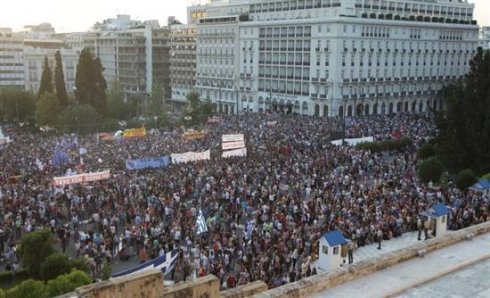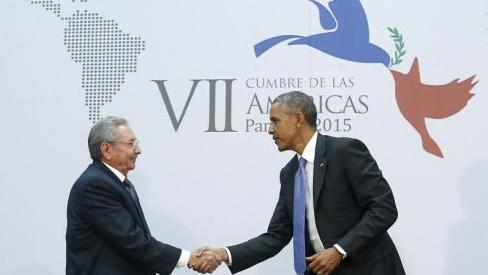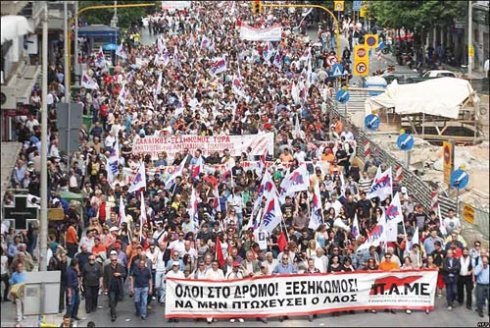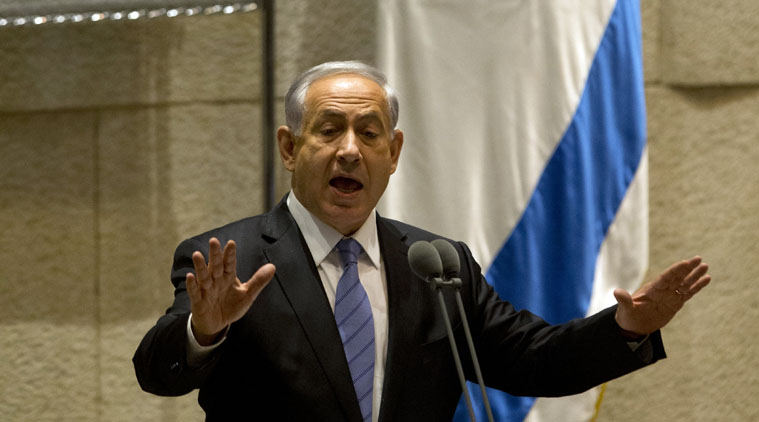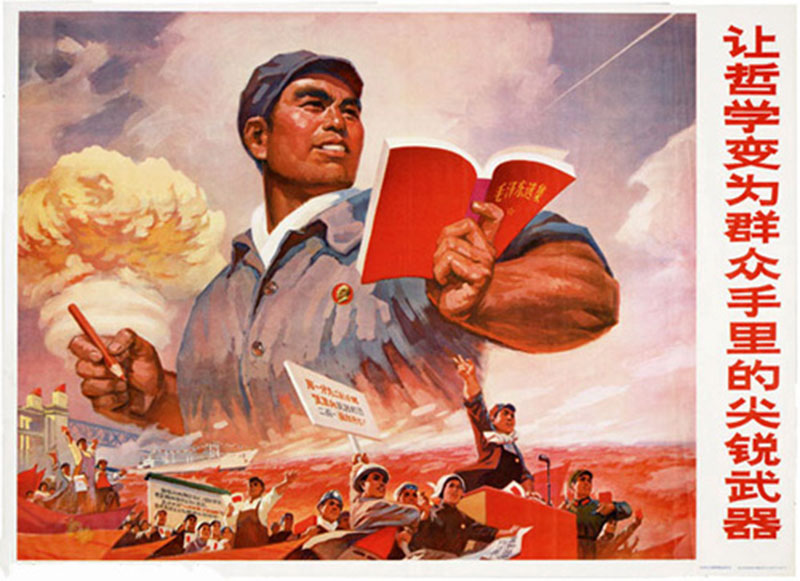South America
The return of the dangerous subject
01/08/2013
Friday, July 19, 2013
In just eight months, the scene of the class struggle in South America has changed completely, with the intervention of the working class as one of the outstanding axes of the social process. Let’s take a look:
Argentina. November 20, 2012. The call for the general strike by Hugo Moyano’s CGT, that was the central component of the governability of the Kirchner years, after the December 2001 rebellion, is used by the working class to bring the country to a standstill. There begins a process in the consciousness of groups of the workers, that are expressing their opposition to the government like that, and that now has its expression in hundreds of conflicts throughout the country. November 20 showed that the class-conscious organizations achieved by the left in the previous stage, could play a leading role on the picket lines, by blocking streets and roads, that helped groups of workers not signed up in Moyano’s CGT, not to go to work, and made it possible for the widespread discontent to be expressed. However, the policy of Moyano’s bureaucracy was only to play at the struggle for a little while, in order quickly to leave the streets and subordinate itself to the right-wing Peronist opposition to the government, facing the election campaign. The political crisis is what is dynamic now. Rule by the Kirchners confronts the challenge of a group from the territorial political machine of Peronism in Buenos Aires and from an alliance between the remains of Duhalde’s rule, with the union bureaucracy. In the split of Peronism and its bureaucracy, the prospect of a national crisis is projected, provided that the working class intervenes as a political factor with its own demands and methods. The phenomenon of increasing workers’ struggles indicates the possibility that there will develop a recomposition of the rank and file organizations of the workers’ movement, which, because of the loss of prestige of the old union leaderships to represent the interests of all the workers, puts on the agenda the self-organization and grouping of activism along class-conscious and anti-bureaucratic lines, where the revolutionary left has to act in a decisive manner.
Bolivia, May 2013. The workers of Bolivia, with the miners, teachers, health-care and industrial workers in the vanguard, begin a process of struggle that has its peak in the fifteen days of a general strike with road blockades: a big independent workers’ action that confronts the pensions law of Evo Morales’ government. The working class has totally recovered from the harsh defeat received during the neo-liberal cycle. This time, the class struggle unites thousands and thousands of workers in the streets. As we say in this article, “During the 15 days of struggle, hundreds of thousands of workers occupied between 35 and 40 points of blockade on national roads, with massive mobilizations in all and in each one of the Departments, strikes among teachers, healthcare workers, and some mining enterprises, as industrial workers demonstrate that the social subject that was given up for dead, as finished, is showing that it is alive and is beginning to recover an ability to fight that has not been seen in these two decades.”
The process exposes the government of Evo Morales, that had to resort to the mobilization of the bureaucracy of the peasants and indigenous peoples, to confront the power of the workers in the streets; the right to strike has been prohibited, and hundreds of workers are being arrested, and [the authorities] are launching a campaign of false accusations against the Trotskyist left, accusing it of conspiring for a coup d’état. The condemnation of Trotskyism conceals a more general attack on a subjective tendency of great importance for one of the most militant and revolutionary proletariats of Our America, that of the formation of a Workers Party, based on the miners’ unions, that, despite the harsh political struggle inside it, against the tendencies of the union leaderships towards reformism and conciliation, expresses an advance in the constitution of the Bolivian working class as a center of a class opposition on the left to Evo Morales’ government.
Brazil: July 11, 2013. The strike called by the CUT and other union organizations is ending. The millions of young people, students and groups from the middle classes, that mobilized against the inadequacy of transportation, governmental corruption in a Brazil of violent social inequalities, have opened the road to the bursting in of a much more dangerous subject. The workers, the social base par excellence of the PT government, are the key element of the day. Metalworkers, oil workers, dock workers, bank clerks, shop workers. Despite the policy of the CUT’s PT leadership, that is betting on preventing a forceful struggle, on many occasions, the mobilizations were beyond the directives of the union bureaucracy. Like the General Motors workers, that improvise barricades blocking the highways, or the thousands that went to the streets in different cities of the country.
Chile: July 11, 2013. The biggest workers’ mobilization since the collapse of the Pinochet dictatorship, happens. The CUT (United Workers’ Federation), lined up by the CP, tried to exercise bureaucratic control, by preventing the private-sector workers from joining the national strike. But the day becomes a big, militant workers’ action, which the student movement joins. 150,000 people go out to demonstrate. The emergence of a vanguard of workers, that is the outstanding protagonist on the barricades, that extend through several communities, and, on several occasions, confront the police, is also a fact. Everyone is aiming against the economic model, that has started to break down, against the Chilean health care, educational and social security system. As our comrades of the Chilean PTR say, “The worker-student unity continues advancing in the streets, with the June 26 strike and mobilization and the July 11 National Strike with a mobilization. The class struggle continues its tendency to intensify. The entire legacy of the dictatorship, preserved and deepened by the Concertación and the right wing, is creaking.”
By way of a conclusion: The recent events in Brazil announce that a sleeping giant, that is, the Brazilian proletariat, has begun to move. But its bursting in does not constitute a bolt of lightning from the blue. It is recorded within the response that groups of the masses are making, facing the attacks of the world capitalist crisis. They are the expression in the subcontinent of the enormous mobilizations that we saw in Turkey or Egypt (where the process is more acute); it is part of the emergence of young people that is increasing in several countries, where the workers are also beginning to intervene. However, the phenomenon that involves the Latin American South has a distinctive feature: in only eight months, the working class has taken a stance as one of the fundamental detachments of the class struggle. The re-emergence of the working class has given new strength to the unions as a political factor. Weakened in the neoliberal phase by unemployment and the profound division of the workers’ ranks, for which the union bureaucrats share responsibility, and relatively invigorated by the objective recomposition of the workers’ forces in the production process, they are going to the front, but with corrupted bureaucratic and reformist leaderships, in many cases discredited in front of their rank and file.
In Brazil, Argentina and Bolivia, the workers, with greater or lesser political perception, are beginning to confront post-neoliberal progressive governments that are completing their cycle and that had, as a function, containing the wave of social rebellions of the beginning of the twenty-first century. A change in the subjectivity of big swaths of the workers, that opens up possibilities for strengthening the rank and file organizations of the workers, of the tendencies to self-organization, to workers’ and popular unity and class political independence. In contrast, in Chile, the working class is fighting against the government of the right-winger Piñera and a regime inherited from Pinochet’s rule, that, despite attempts at self-reform, remains an anachronism. But perhaps the experiment that their class brothers are beginning to make, by crossing the borders, will allow groups of the Chilean proletariat to avoid falling into the trap of progressivism.
It should be noted that this new South American workers’ movement is going into action at a time when the international capitalist crisis is not yet directly affecting the regional economies, and its list of demands has more to do with the defense of recently achieved social positions or rights delayed, than with a direct attack by the capitalists on their living conditions, refuting the common view that only associates the re-emergence of the workers with economic catastrophe.
The South American proletariat is moving again, answering with the class struggle, the post-modern theories that eliminated the revolutionary character of the working class as an emancipating subject. Now it is returning to the scene – although certainly with enormous contradictions – but not like a shooting star that disappears on the horizon: it is a power that is beginning to assert its presence to stay. In the 1990’s, in the rise of neo-liberalism, the subversive role of the working class was thought to be finished, next to ideologies. Roughly at the end of the twentieth century, the “multitude” replaced the working class as an emancipating subject, according to the autonomist theories, that were a little late in succumbing to the “charm” of the progressive governments of the Southern Cone, by building the alliance between the social movements and the semi-colonial bourgeois states, as a subject of change. Now pages and pages are being written about Brazil and the emergence of the middle classes, pointing at the spirit of the “outraged ones,” where it seemed to take up the “multitude” again, without noticing the profound phenomenon of the proletarian class struggle. It is a soothing vision that makes its own the common sense of the bourgeoisie. Recognizing that does not mean denying the importance of the social mobilizations of the middle classes and the youth, in front of the crisis of the post-neoliberal governments. Without understanding that that middle class that in Brazil went out to the street to question the PT government from the left, has permitted the dangerous subject to take its first steps. Let us recall that the Argentinian revolutionary Liborio Justo knew to point out that from the unity of the proletariat of Brazil and Argentina, the driving forces of the social revolution in the Southern Cone of Our America could be glimpsed.
We are witnessing, then, the first steps of a giant, not without contradictions, detours and setbacks. For revolutionaries, the emergence of the working class creates the possibility that militant vanguards will take shape, that will lay the foundations for building revolutionary parties embedded in the working class. The Marxist left has to work with the perspective of uniting the working class, of recovering the unions as weapons through the expulsion of the bureaucracy from the unions and of working-class and popular self-organization, by preparing a program that will unite all the oppressed, the middle classes and impoverished peasants, against their common enemy, capitalism, its state and its political agents. The reconstruction of revolutionary Marxism, that will lead the coming class struggle, will depend on the independent resurgence of the working class.
Translated by Yosef M.
